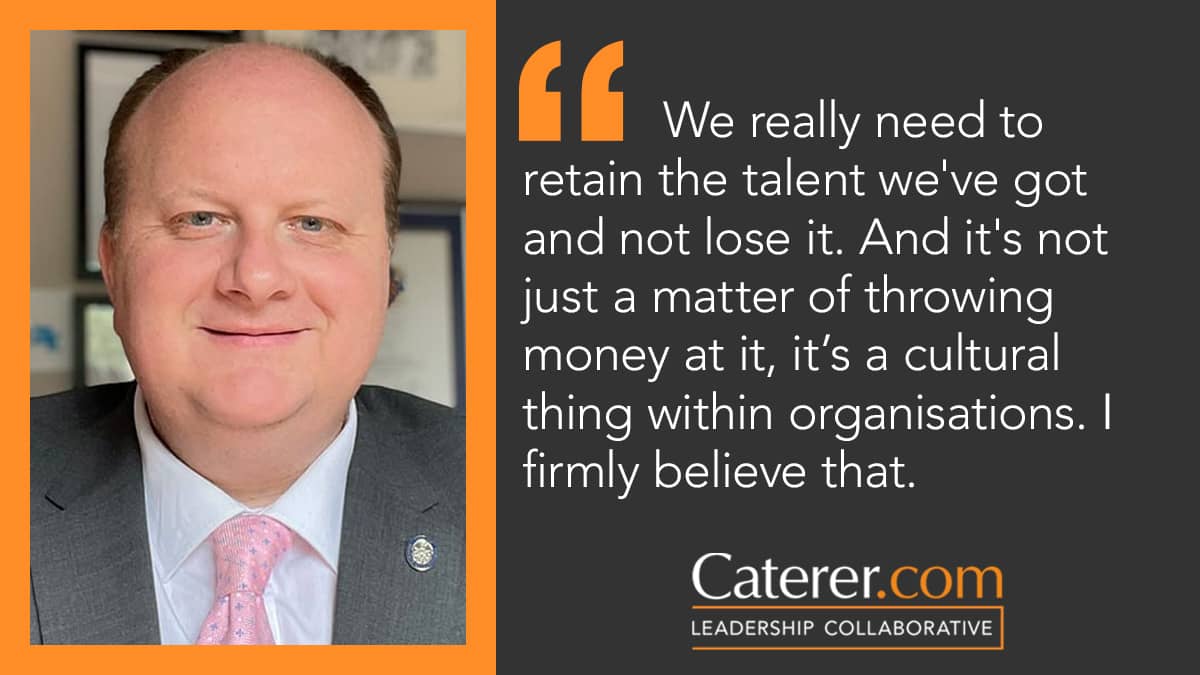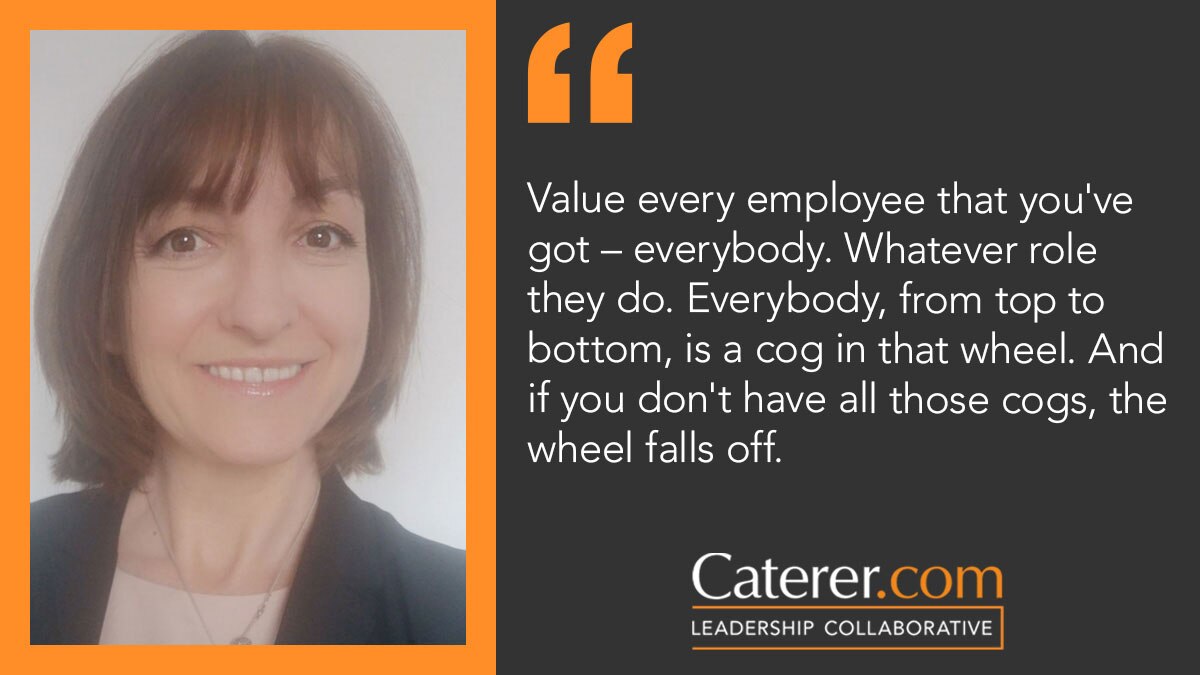How can hospitality businesses retain their workforce?
Skills shortages are nothing new to the hospitality industry. In fact, this was a challenge long before we were all hit with the pandemic and Brexit, but with this added pressure, holding on to an existing workforce has never been so important. But how does the sector fight its way back with so many other sectors now facing the same challenges, changes to candidate expectations and with the current economic climate? What are the real challenges facing employers and what changes can be made in recruitment processes?
Press the play button above to watch the video.
Caterer.com spoke to Sharron Marsh, Group Head of Talent at The Doyle Collection to hear her views and explore her top tips for talent retention.
According to research conducted by Fourth*, hotels in the UK were the most stable when it came to retention, with only a 5% leaver rate. The industry as a whole, however, is still having to replace 6% of the labour force who are leaving each month. Rates of pay are rising sharply, so employers are desperate to retain the best people.
What are hospitality candidates looking for in their role?
“We lost huge numbers of talent across hospitality during the pandemic, and during that time, a lot of people went back to their home countries,” Sharron Marsh told us. “There were over 100,000 people that left the hospitality sector, so the competition in that market is now really, really tight.”
Sharron believes the biggest challenge in retaining great talent is making sure that you hit three key needs. “Firstly, it’s about salary and making sure that your people are being rightly rewarded for what they’re doing. In addition, learning and development plays a key role.” Plus, Sharron also considers flexibility to now be a very important factor. “It’s about making sure that you have a flexible approach to the workplace. These three elements are becoming increasingly important in retaining talent.”
Sharron was also keen to point out that apart from these three key factors, “softer” offerings are also becoming more important, such as benefits that will affect how employers emotionally connect with their workforce and wellbeing in the workplace. “I think more than ever, you have to look at wellbeing,” Sharron said. “Employee assistance programs are very, very popular because you’re looking after people’s mental health and these issues have become more prevalent since the pandemic.”
“We have introduced Mental Health first-aiders who have proved to be highly valued. People have bad days, and that’s OK we all have them. Our Mental Health first-aiders are there to let everybody know there’s support there when it’s needed. They know the signs to look for and can see if people are struggling,” Sharron said.
Continuing to attract talent
As well as working hard to retain top talent, attracting fresh new talent is also an ongoing task. Sharron believes getting back into face-to-face interviewing is the way forward. “We’re moving away from zoom calls and interviewing over screens.” Sharron thinks this approach has been beneficial. “People can see, and they can feel and’ touch’ the environment in which they’ll be working, which you just can’t gets on a screen.”
It was one of the tactics that The Doyle Collection did change quite quickly. “Bringing people back into venues and moving away from video calls. You can’t serve a customer tea or coffee over zoom”.
Referral programs have also been very popular at The Doyle Collection. “We reward team members bringing people they know into the business. Team members like having familiarity with their colleagues, it really helps to build a family feel across the workplace. It’s been very popular across our teams because of this, and it creates a more positive working environment. It’s worked very well across all the properties.”
What are Sharron’s top tips for employee retention?
*Source: Fourth’s hospitality research (August 2022)
You may also like

Sam Coulstock a renowned hospitality Learning and Development expert, previously holding positions at Springboard and Umbrella Training. He is currently Head of Professional Development at the Institute of Hospitality and is also Founder & CEO Founder Inspired Community Group CIC, working with schools to showcase and drive talent into the world of work.

The Springboard Ambassador programme was created to promote the hospitality industry as a great place to work by inspiring the next generation of hospitality professionals. Each Ambassador works hard to champion the industry, but what does the role actually entail?

On average, the majority of people working in UK hospitality are aged between 20 and 24, according to research carried out by the CIPD in their 2019 Megatrends report. As an industry hospitality is powered by young talent at entry level, with many seeing hospitality as a stopgap job, looking for opportunities rather than a career. What can the sector do to engage and retain its young workforce?
